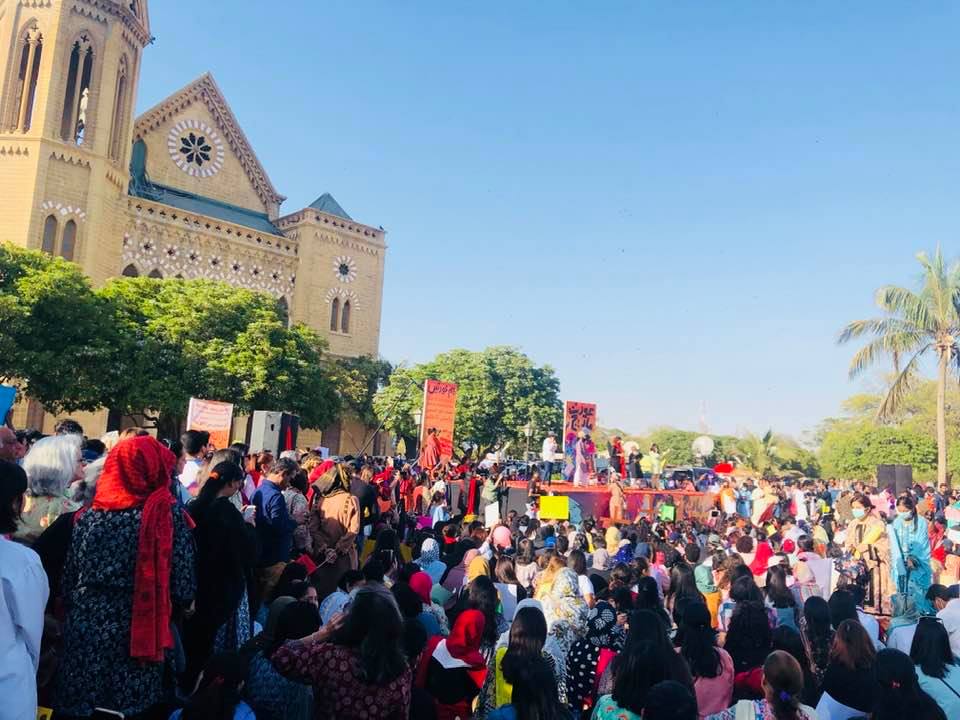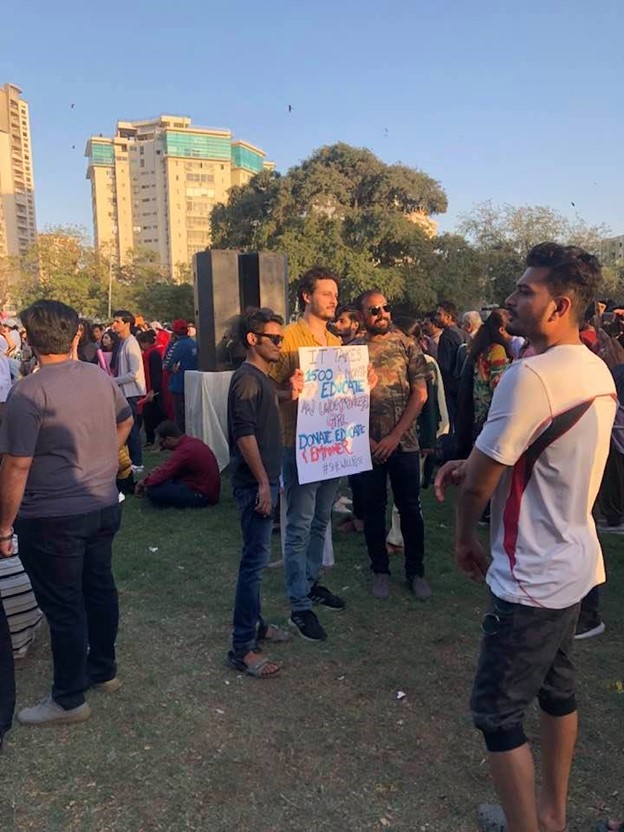As a blogger and a young student, I have seen the civic spaces within Pakistan evolve over the past decade especially because of the reemergence of democracy after a decade long military dictatorship. Also, with the expansion of social media use, people — especially young people — are now more aware about their civil rights in a democracy and therefore a common fact about social activism these days in Pakistan, particularly liberal activism is that it mostly has a younger fan following.
As is the case all around the world, women’s rights are being talked about more today than ever before, mainly because people all around the world feel more empowered and thanks to new ways of communication followed by new trends, these social movements are usually well connected and have a bigger outreach than ever before.
Every year on International Women’s Day, the Women’s Democratic Alliance and the Women’s Action Forum along with other left-wing groups and parties organize rallies across major cities in Pakistan. They call it the “Aurat March”, which literally translates to Women’s March. The rallies are usually not sporadic and have somewhat of a defined manifesto centering around women’s rights along with trans rights and other Human Right’s issues.
Coincidentally, during the International Women’s Day in 2020 I was in Karachi which is one of those cities in 2020 where we had a local “Aurat March”. To observe a social political event like this in Pakistan was something that motivated me to participate.
As a rule to ensure security of the female participants and their male allies, it was required that each male ally was to be accompanied by a female in order to enter the enclosure, for some this was a controversial move however, others, including me believe that it was the need of the hour, since the rally was threatened by hooliganism from outsiders therefore a particular balance was required. Water bottles were checked thoroughly due to fears of acid attacks and generally a large police presence equipped riot gear was in place along with the anti-terrorist squad in order to protect the demonstration from conservative rioters and terrorist attacks.
Agenda:
The rally plan was to first of all gather at the Frere Hall which is a major city landmark and the former city hall of Karachi, The event would start off with plays organized by college and university students highlighting daily life issues faced by women in the society, along with speeches by trans activists based on educating people about the biases that lead to exclusion of the trans community from the mainstream.
The agenda of the march in my opinion is centered around both educating the masses and influencing lawmakers to introduce more inclusive legislations that take into account the issues that have been previously ignored.
Some of the most important issues that were highlighted:
- Equal Pay
- Shortage of Medico legal officers in the city for rape cases
- Slandering and biases against the trans community which forces them to stay out of the mainstream of the society
- Workplace Harassment
- Rising cases of domestic violence, harassment and rape and how cultural repression prevents victims from speaking out.
- Slow justice for rape victims etc.

Banners, posters and slogans:
Because it is a fact that most common Pakistanis are largely unaware about liberal politics and agendas so at times it becomes hard for movements like these to get their message across without it being distorted during the process.
Which is where the placards and posters come in. As I remember the entire venue was covered with people holding these custom made posters which were although quite simple but did a good job in sending the message across in short easy to read phrases.
The presence of counter protestors although made the overall situation quite tense but it was pleasing to see that at least in Karachi, people preferred dialogue over violence as there were exchange of debates between both protestors and counter protestors during the rally, however, the same did not happen in Islamabad where protestors belonging to religious groups including those from the infamous Red Mosque attacked the Feminist rally, injuring many women activists and their allies.
Role of celebrities and influencers:
In today’s world, the role of celebrities and influencers is gargantuan. It can help spread the message to millions instantly. Therefore, the support that the Aurat March got from Pakistani celebs was one of the things that made the march and its motive successful. In Lahore, Karachi and Islamabad, renowned celebs supported the feminist demonstrations openly which did make their character a bit controversial but it also did help change people’s narrative greatly.
Other rallies across the city:
While religious groups including the mainstream Jamat-e-Islami party did organize their separate women’s’ rights rally named Haya March (march of modesty) on the same day, but most of those rallies failed to address the core issues faced by women and the marginalized, moreover they were mostly focused on slandering the Aurat March rather than addressing real issues.
Propaganda against the march:
The organizers of the march had put up banners on the venue requesting the media to report the event in an unbiased way. Moreover, something that I observed personally was that as the day went on the venue got infiltrated by hooligans who tried to harass women and small youtubers trying to malign the motive of the march.
Accusations of Classism:
Throughout the years the most prominent feminist parties and their allies had been accused of classism, with those critical of the Pakistani Feminist movement calling it an “elitist show” including prominent Pakistan based American blogger Cynthia Dawn Ritchie who referred to it as “elitist women bullying other women with difference of opinion”. Something which the supporters of the march refer to as “whitesplaining” Therefore, in a show of inclusivity, women from different parts of the province, belonging to different social classes were given ample opportunity to speak on stage.




